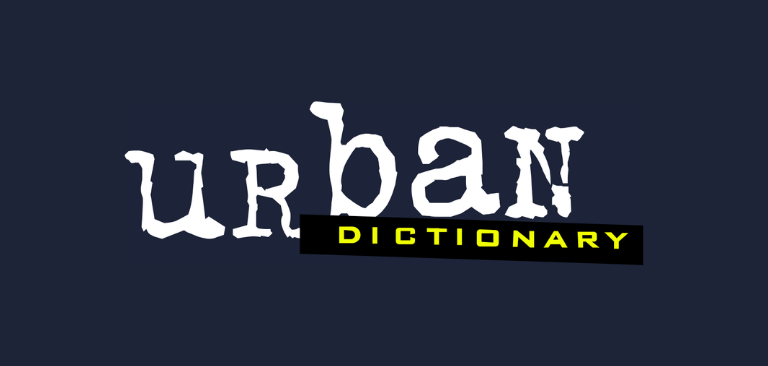Urban Dictionary, one of the last more mainstream places on the internet for edgy and irreverent humor, has announced that there are going to be some changes going forward.
The decision comes less than a year after it was Urban Dictionary’s turn to come under some corporate media scrutiny and the site started getting media attention for its “problematic” content.
Some of the definitions there “aren’t entirely accurate,” Wired observed back in September of 2019. And what was once a fun site, informative of the latest slang terms and trends had now become, according to Wired, a toxic place filled with hate speech – apparently because it’s “open to anyone.”
It doesn’t say it explicitly, but this piece that digs into Urban Dictionary’s roots and role simply longs for some censorship and better and more gatekeeping.
Aaron Peckham founded Urban Dictionary in 1999 because, as he said in 2014, he didn’t like the idea that “a printed dictionary, which is updated rarely, tells you what thoughts are OK to have, what words are OK to say.”
But Wired wanted him to rethink that, because after decades of being the open internet’s go-to reference for slang, the site has leaned into defining just any word or phrase, and often not for the sake of clarifying it to the uninitiated, but just to make a joke.
From that angle, Urban Dictionary can be described as a vast collection of word-only memes.
Take for example the definition of Donald Trump, with over 25k upvotes: “The man who got more obese women out to walk on his first day in office than Michelle Obama did in eight years.”
Is it “accurate”? There’s really no way of knowing. But it’s damn funny.
In the article, Urban Dictionary’s biggest weakness is seen in the fact it allows “anyone to post definitions” (but it’s unclear what the alternative would be on a crowdsourced site who’s motto is, “Urban Dictionary Is Written By You”? Redefining “you” as, “the selected, vetted few of you”?)
That’s also known as free speech, which is disturbingly all often nowadays equated with “hate speech”
And because “anyone” can contribute to a project like this, bad things are happening, the article claims. “Racism, homophobia, xenophobia, and sexism currently serve as the basis for some of the most popular definitions on the site,” says Wired.
The website’s verdict is that Urban Dictionary has lost its sheen and even utility as a tool to understand slang and subculture, and isn’t even funny anymore. It was a good democratizing idea once upon a time, but it has now “eaten itself,” the report appears to believe.
But there was little response from Urban Dictionary at the time.
Roll forward to July of 2020, where everything new and old is being reconsidered.
Urban Dictionary this week made a very corporate announcement:
“Like other online platforms we’ve been inundated by hate speech and abusive content targeting women, BIPOC, LGBTQIA+, and other vulnerable groups. Hate speech and abusive content online can cause real harm offline. It can also make people feel unsafe to speak up and share their language, silencing entire groups of people. This is not what we want our platform to be for.
“Urban Dictionary plays an important role in defining language on the internet and popular culture. To do this right and to earn the role you’ve entrusted us with, we need to make sure our system measures up to our values. The site has always been a place for people to define the messier edges of language, but we can’t allow it to foster hate.”
“We will change as hate speech changes. No single fix will work forever. Hate speech and abusive content will evolve, and we’re committed to changing our policies to meet it,” wrote Aaron Peckman, the CEO of Urban Dictionary.
Urban Dictionary is small in the grand scheme of things and so its crackdown on speech isn’t as relevant as the practices on monopoly platforms such as Facebook and YouTube where public discourse can be molded at the flick of a switch and where those who get to decide what “hate speech” is have all the power. Still, Urban Dictionary’s changes may not go unnoticed since part of the appeal of the site was the very close-to-the-bone type of offensive humor.
If you're tired of censorship and dystopian threats against civil liberties, subscribe to Reclaim The Net.









